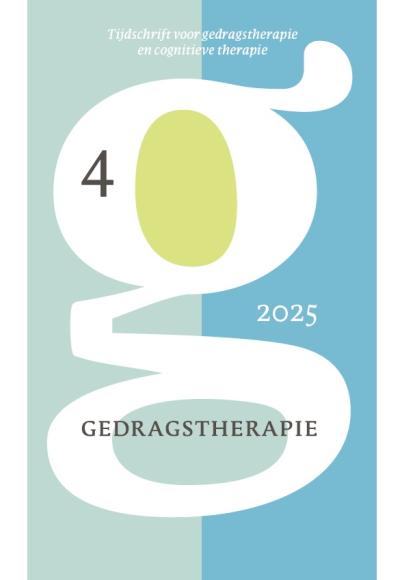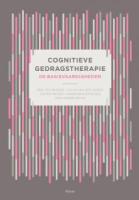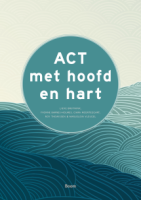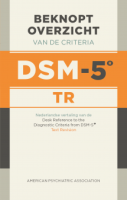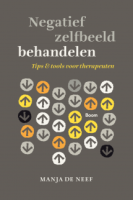Inhoud
De klap komt nog- een verhandeling over het nocebo effect
Samenvatting
Nocebo is het tegenovergestelde van placebo: de verwachting van een negatief effect bevordert het optreden van het negatieve effect. Dit fenomeen is onderzocht bij astma, pijn en medicatie. In psychotherapie is weinig aandacht voor nocebo. We beschrijven twee cases waarin het nocebo-effect optrad en de interventies die de therapeut toepaste om de schadelijke effecten te neutraliseren. We geven suggesties hoe nocebo in psychotherapie bestreden kan worden.
Literatuur
- Amanzio, M., Corazzini, L.L., Vase, L., & Benedetti, F. (2009). A systematic review of adverse events in placebo groups of anti-migraine clinical trails. Pain, 146, 261-269.
- Barsky, A.J., Saintfort, R., Rogers, M.P., & Borus, J.F. (2002). Nonspecific medication side effects and the nocebo phenomenon. JAMA, 287, 622-627.
- Bisson, J., & Andrew, M. (2007). Psychological treatment of post-traumatic stress disor der (PTSD), Cochrane Database Systematic Review (2): CD003388
- Bonneux, L. (2007). Elektromagnetische velden: gezondheidschade door het nocebo effect. Nederlands Tijdschrift voor Geneeskunde, 151, 953-956
- Bootzin, R.R., Bailey E.T. (2005). Understanding placebo, nocebo, and iatrogenic treatment effects. Journal of Clinical Psychology, 61, 871-80.
- Colloca, L., Sigaudo, M., & Benedetti F. (2008). The role of learning in nocebo and placebo effects. Pain, 136, 211-8.
- Cruz de la M., Hui D., Parsons H.A., & Bruera E. (2010). Placebo and nocebo effects in randomized double-blind clinical trails of agents for therapy for fatigue in patients with advanced cancer. Cancer, 116, 766-774.
- Dishion, T.J., & Andrews, D.W. (1995). Preventing escalation in problem behaviors with high-risk young adolescents: immediate and 1-year outcomes. Journal of Consulting and Clinical Psychology, 62, 538-548.
- Ehlers, A., & Clark, D. (2003). Early psychological interventions for adult survivors of trauma: a review, Biological Psychiatry, 53, 817-826.
- Enck, P., Benedetti, F., & Schedlowski, M. (2008). New insights into the placebo and nocebo responses. Neuron. 59,195-206.
- Isenberg, S.A., Lehrer, P.M., & Hochron, S. (1992). The effects of suggestion on airways of astmatics subjects breathing room air as a suggested bronchoconstrictor and bronchodilator. Journal of Psychosomatic Research, 36, 769-776.
- Kihlstrom, J.F. (2005). Dissociative Disorders. Annual Review Clinical Psychology, 1, 227-253.
- Kirsch, I. (2005). Placebo psychotherapy: synonym or oxymoron. Journal of Clinical Psychology, 61, 791-803.
- Lambert, M.J., & Barley, D.E. (2002). Research summary on the therapeutic relationship and psychotherapy outcome (pp. 17-32). In: J.C. Norcross (Ed.) Psychotherapy relationships that work. Oxford: Oxford University Press.
- Leigh, R., MacQueen, G., Tougas, G., Hargreave, F.E., & Bienenstock, J. (2003). Change in forced expiratory volume in 1 second after sham bronchoconstrictor in suggestible but not suggestion-resistant asthmatic subjects: a pilot study. Psychosomatic Medicine, 65, 791-795.
- Liccardi, G., Senna, G., Russo, M., Bonadonna, P., Crivellaro, M., Dama, A., D'Amato G., Canonica, G.W., & Passalacqua, G. (2004). Evaluation of the nocebo effect during oral challenges in patients with adverse drug reactions. Journal of Investigations into Allergology and Clinical Immunology, 14, 104-107.
- Lunch, T.R., Chapman, A.L., Rosenthal, M.Z., Kuo, J.R., & Linehan, M.M. (2006). Mechanisms of change in dialectical behaviour therapy: theoretical and empirical observations, Journal of Clinical Psychology, 62, 459-490.
- Mayou, R. A., Ehlers, A., & Hobbs, M. (2000). Psychological debriefing for road traffic accident victims: three-year follow-up of a randomised controlled trial. British Journal of Psychiatry, 176, 589-593.
- Myers, M.G., Cairns, J.A., & Singer, J. (1987). The consent form as a possible cause of side effects, Clinical Pharmacological Therapy, 42, 250-253.
- Put, C., Van den Bergh, O., Van Ongeval, E., De Peuter, S., Demedts, M., & Verleden, G. (2004). Negative affectivity and the influence of suggestion on asthma. Journal of Psychosomatic Research, 57, 249-255.
- Reeves, R.R., Ladner, M.E., Hart, R.H., & Burke R.S. (2007). Nocebo effects with antidepressant clinical drug trail placebos. General Hospital Psychiatry, 29, 275-277.
- Rubin, G.J., Hahn, G., Everitt, B.S., Cleare, A.J., & Wessely, S. (2006). Are some people sensitive to mobile phone signals? Within participants double blind randomised provocation study. British Medical Journal, 332, 886-891.
- Varelmann, D., Pancaro, C., Cappiello, E.C., & Camann, W.R. (2010). Nocebo-induced hyperalgesia during local anesthetic injection. Anesthesia and Analgesia, 110, 868-70.
- Verheul, W., & Bensing, J.M. (2008). Het placebo-effect in de huisartsenpraktijk: communicatie als medicijn. Bijblijven, 24, 38-44.
- Voelker, R. (1996). Nocebos contribute to a host of illnesses. JAMA, 275, 345-347.
- Yawger, N.S. (1936). Emotions as the cause of rapid and sudden death. Archives of Neurology and Psychiatry, 36, 875-879.
 © 2009-2026 Uitgeverij Boom Amsterdam
© 2009-2026 Uitgeverij Boom Amsterdam
De artikelen uit de (online)tijdschriften van Uitgeverij Boom zijn auteursrechtelijk beschermd. U kunt er natuurlijk uit citeren (voorzien van een bronvermelding) maar voor reproductie in welke vorm dan ook moet toestemming aan de uitgever worden gevraagd:
Behoudens de in of krachtens de Auteurswet van 1912 gestelde uitzonderingen mag niets uit deze uitgave worden verveelvoudigd, opgeslagen in een geautomatiseerd gegevensbestand, of openbaar gemaakt, in enige vorm of op enige wijze, hetzij elektronisch, mechanisch door fotokopieën, opnamen of enig andere manier, zonder voorafgaande schriftelijke toestemming van de uitgever.
Voor zover het maken van kopieën uit deze uitgave is toegestaan op grond van artikelen 16h t/m 16m Auteurswet 1912 jo. Besluit van 27 november 2002, Stb 575, dient men de daarvoor wettelijk verschuldigde vergoeding te voldoen aan de Stichting Reprorecht te Hoofddorp (postbus 3060, 2130 KB, www.reprorecht.nl) of contact op te nemen met de uitgever voor het treffen van een rechtstreekse regeling in de zin van art. 16l, vijfde lid, Auteurswet 1912.
Voor het overnemen van gedeelte(n) uit deze uitgave in bloemlezingen, readers en andere compilatiewerken (artikel 16, Auteurswet 1912) kan men zich wenden tot de Stichting PRO (Stichting Publicatie- en Reproductierechten, postbus 3060, 2130 KB Hoofddorp, www.cedar.nl/pro).
No part of this book may be reproduced in any way whatsoever without the written permission of the publisher.
Inloggen VGCt en VVGT
Leden van de VGCt en de VVGT loggen in via de site van hun vereniging. Als u op die site bent ingelogd als lid, vindt u daar een button naar het Tijdschrift voor Gedragstherapie.
English
Behavioral Therapy: Journal for Behavioral Therapy and Cognitive Therapy ISSN 0167-7454
Information in English can be found here.



